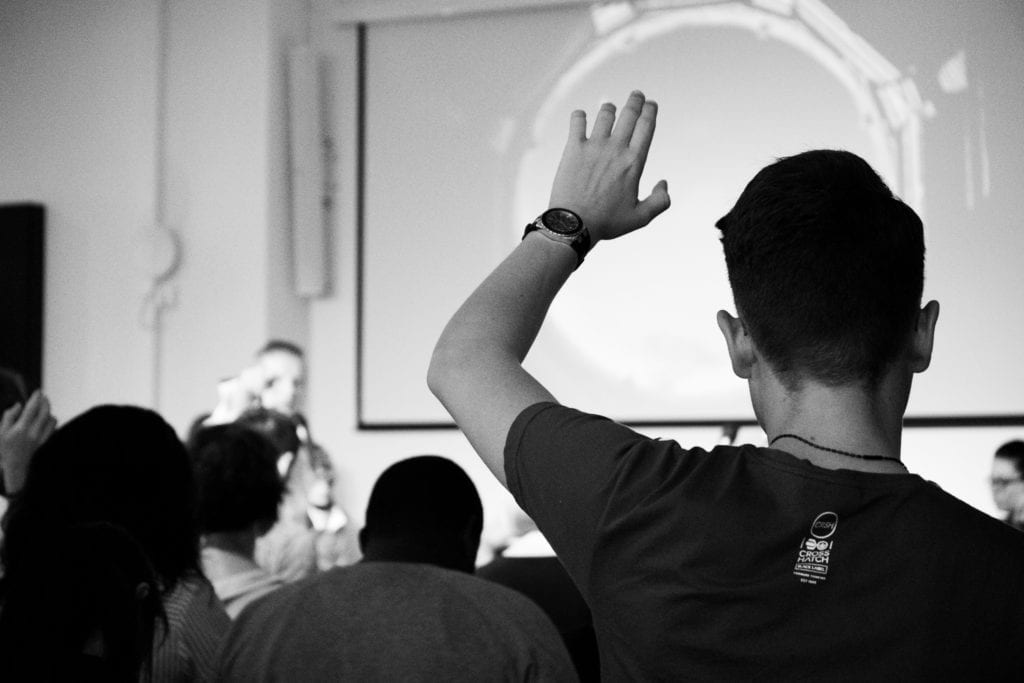Mixing Youth and Water: If they don’t give you a seat at the (policy) table, bring a folding chair!
You have probably heard it before. “The youth are the leaders of tomorrow”. “Today’s youth are tomorrow’s hope”. And, let’s not mention the quotes about the youth in the water sector. “Youth have the potential of solving water crises”. “Youth can become agents of change for improved water resources management”. At first glance, these quotes sound like the epitome of youth empowerment. They recognize the crucial role young people will play. They underline the fact that sustainable water management goes hand in hand with youth being involved. Yet, after a closer look, one realizes that there is a somewhat flawed rationale behind it: youth belong to the future. Yes, young people are key actors and will eventually be leaders and decision-makers, but they need to wait their turn. In a sense, these quotes convey the notion that youth are part of the narrative – the solution even –, but their contributions will make a difference not today but tomorrow.
Young people and their contribution towards change, however, are already evident in today’s present day. This is true in all sectors, but much more so in the water field. Just look at the extensive list of active and dedicated youth networks in this blue sector: the Mediterranean Youth for Water Network (MedYWat), the World Youth Parliament for Water (WYPW), the Water Youth Network (WYN), the Central Asian Youth for Water (CAY4W), the Youth for Water and Climate (YWC), the Arab Water Council Youth Network, the different chapters of IWA’s Young Water Professionals networks (YWP), and many more. They are all already adding value to this water sector by bringing together a diverse unit of young people, from students and entrepreneurs to experts and community or industry leaders; facilitating cross-cultural and cross-country collaborations; becoming an incubator of ideas, initiatives, and actions.

In the Mediterranean, MedYWat, in particular, has inarguably grown into a hub for young water professionals. And, while you might see me as biased – after all, I am the 2020-2022 coordinator of MedYWat – the facts are out there. In only five years of existence, MedYWat has gained regional attention for its efforts to connect and empower young water professionals, who volunteer their time, expertise, and talents to make a real difference. Through their startups, research, or simply just their daily life experiences, MedYWat members have slowly but steadily become part of the Mediterranean water picture. What started as a knowledge-exchange platform in 2017 is now a community of energetic young people from different ages, countries, and backgrounds, that are working in making this blue box better.
Still, MedYWat’s motto goes beyond connecting and engaging; it includes the powerful charge to impact. With a mission of “creating an everlasting impact on the regional water agenda”, it is clear that MedYWat aims to be a prominent part of the policy scene. Why? Because it is by participating in the formulation, implementation, and evaluation of water policies that MedYWat can have a broad, structural impact that transcends the results of individual interventions. Yet, the same old question persists: How can young water professionals from MedYWat achieve real policy influence?
It is not enough to empower youth to be “decision-makers” if the doors to the decision-making spaces remain locked. It is not enough to empower youth to be “agents of change and impact” if their ideas and initiatives keep falling on deaf ears. Instead of focusing only on youth empowerment, why not urge policy-makers to take active steps to include youth in the decision-making process, not as tokens but as essential drivers? Isn’t it time to recognize that having the youth involved in policy decision circles is not only in the hands of “empowered” young people but also in the hands of policy-makers? Aren’t we ready to say out loud that young people have the right to be part of the discussions, and also be co-creators of the policies?
Because the answer to why young people need to be at the policy table is not a matter of added-value: It is a matter of representation and justice. Sooner or later, in both the Mediterranean’s shores, policy-makers will have to start facilitating real inter-generational dialogue in the water sector. Let’s make it sooner rather than later.
Author’s note: [1] The quote “If they don’t give you a seat at the table, bring a folding chair” belongs to Shirley Chisholm, the first African-American women elected to the US Congress and the first women to run for the Democratic Party’s presidential nomination. [2] I want to thank both Hussam Hussein and Giuseppe Scandone for their useful feedback on the first draft of this blog post.
